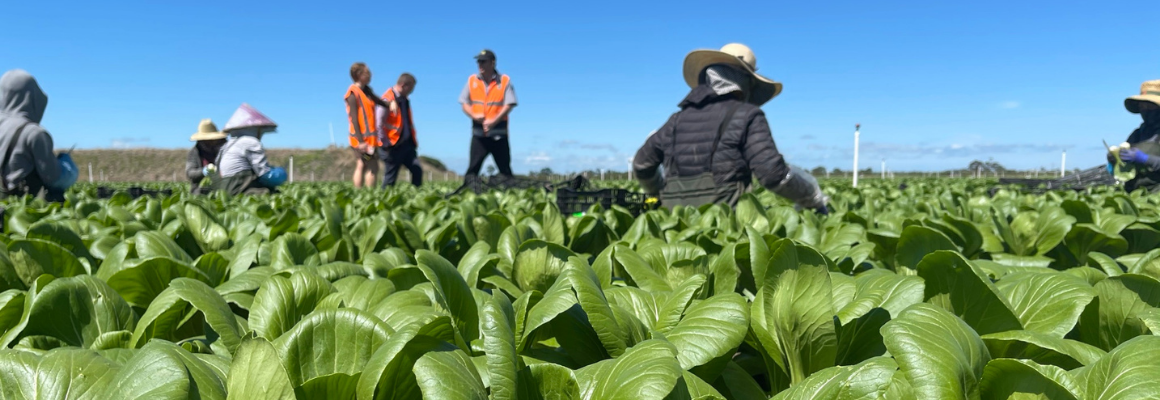
Advancements in integrated crop protection for profitable veg production
14 September 2021
Labour mobility program reforms to reduce red tape for growers to access critical farm workers under SWP and PLS
14 September 2021Results from Australian health surveys show only six per cent of Australian children eat the recommended daily intake of vegetables. While it’s not surprising that children aren’t meeting their vegetable intake, the more concerning fact is low intake tends to carry right through to adulthood. Establishing healthy eating patterns for children is essential for forming good dietary habits that help prevent negative health outcomes. So, what can be done to ensure both healthier children and ongoing demand for vegetables?
A multi-million-dollar project is helping to address this significant underconsumption of vegetables by Australian children. Tools and interventions for increasing children’s vegetable knowledge – VegKIT (VG16064) is a collaboration between CSIRO, Flinders University and Nutrition Australia that is delivering tools to increase children’s vegetable intake. A strategic levy investment under the Hort Innovation Vegetable Fund, the five-year project engages a range of stakeholders with the goal of increasing Australian children’s vegetable intake by half a serving, which would increase vegetable demand by 19,000 tonnes annually.
A panel of experts including nutritionist Tara Leong, Belinda Adams from Coastal Hydroponics, Healthy Kids Association Senior Project Manager Shadia Djakovic, Claire Gardner from Flinders University Caring Futures Institute, Perfection Fresh Australia Chief Commercial Officer John Simonetta and Astrid Poelman and David Cox from CSIRO, spoke to delegates at the Annual Vegetable Industry Seminar (AVIS) about how these initiatives are helping kids eat their vegetables.

VegKIT Speaker Session facilitator Claire Gardner addresses delegates. Photography by Andrew Beveridge.
Targeting kids where they are most
VegKIT initiatives are targeted at stakeholders where kids spend their most time – such as schools and childcare – with teaching resources, menu training, support to enable easier access to fresh produce. Shadia said a school setting is one way kids can learn to eat more veggies.
“The school canteen is a tricky place, and there are a lot of challenges. We know salty and sugary snacks may be to blame for the reduction in vegetable consumption. So, we need to make sure that meals and snacks are appealing and they also taste good, so kids keep going back for more,” Shadia said.
Getting the marketing right
Another area that plays a big role in fostering a love of vegetables in children is through marketing. A great example of this is Perfection Fresh Australia’s baby cucumber product, Qukes.
“We invest quite a substantial amount of money in marketing our key products, one of those is Qukes. Recently, we’ve joined with Soccer Australia and we’re sponsoring the MiniRoos, which includes the Matildas,” John said.
“We do some videos with the Matildas team, making cucumber snacks and salads. And the hits [on social media] have gone through the roof.”
Belinda said colours, presentation, snacking size, and using characters are also proven ways to engage kids.
“A classic example are grape tomatoes. They’re phenomenal as a substitute to lollies, and what parent doesn’t want a child eating tomatoes or fruit?” she said.
Putting more veg on the plate
The other major source of vegetable information and supply is parents, and VegKIT resources can help to incorporate more vegetables at the dining room table. At the core of this is changing how adults teach children about veggies.
“We really do have to shift away from just getting parents to stand over the top of children and force them to eat carrots, because they contain vitamin E. That’s it’s very old-fashioned way of thinking,” Tara said.
Recent research shows repeated exposure to a variety of vegetables teaches children to learn to like them. Astrid said a great approach is offering a small amount with every meal, whether kids eat them or not.
“We can also see that eating vegetables in combination with other kinds of foods and dishes that children like can help facilitate that transfer, and it actually also helps breed an acceptance for the vegetables themselves outside of that meal context,” she said.
Find out more
The VegKIT website now contains a suite of practical, evidence-based resources for food industry, health professionals, school and day care centres. These can be found on the VegKIT website.
Presentations from the 2021 Annual Vegetable Industry Seminar are available to watch on the Hort Connections website.
Annual Vegetable Industry Seminar is a strategic levy investment under the Hort Innovation Vegetable Fund.
This project has been funded by Hort Innovation using the vegetable research and development levy and contributions from the Australian Government.
Project Number: VG20000


